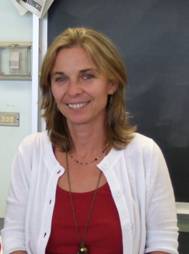Abramson, Tzvia Segal

Professor, Biological Sciences
Professor/Academic, Biological Sciences-Foundation
Preferred: tzvia.abramson@sjsu.edu
Telephone
Preferred: (408) 924-4872
Alternate: Office: 408-924-4872 Lab: 408-924-4857
Office Hours
Tuesday and Thursday 10:30-1pm
San José State University
Department of Biological Sciences
One Washington Square
San José, CA 95192-0100
Duncan Hall, Room 446 / Lab 449
Education
- Doctor of Philosophy, Foreign Institution, 1991
- Post doc, Immunology and Microbiology, Stanford University, United States, 2005
Bio
My research interests focus on mucosal immunity, specifically on the tolerance mechanisms
induced in response to infection. It is intriguing how despite common microbial recognition
molecules, some microbes are able to reside within our organs, evading detection by
the immune system, others trigger a strong immune response that may harm both the
microbe and the host and yet others, can be tolerated by the immune system such that
they thrive in our body while causing chronic disease. The organs exposed to the external
environment are lined with mucosal tissue and are constantly in direct contact with
microbes. The mucosa comprise a specialized network of immune and residential cells
that together sustain the mucosal immunity. In my research lab, we study two aspects
of mucosal immunity one triggered by a pathogen in the airway and the other autoimmune
triggered inflammation in the gut:
a. Immunity in respiratory tract- Bordetella pertussis - a highly contagious human
respiratory pathogen that triggers a prolonged disease with fatal outcomes in infants.
We are particularly interested in the strategies applied by these bacteria such that
the adaptive immune response is diverted to tolerate the infection for prolonged periods
of time.
a. Detection of circulating immune cells with gut homing surface molecules as a tool
to follow the course of inflammatory bowel diseases and to monitor the effectiveness
of a variety of commonly used therapies in affected patients.
Students with research interests in these fields are encouraged to contact me to further
discuss specific projects available.